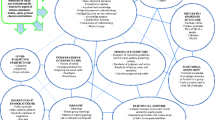Abstract
This article takes as a starting point the critical analysis of attempts to define “culture”, offered by Jahoda in 2012. Basing on the observed proliferation of various, often contradicting, definitions of “culture” (for instance, trying to refer to its both internal and external aspects), Jahoda arrives at the conclusion that attempts to define the concept of “culture” are vain and useless and it is quite practicable simply to use the term without seeking to define it. We find it hard to agree with this statement. Elaborating on Jahoda reflections and drawing on the recent debates in social sciences, cultural studies and philosophy, we argue that seeking for the definition of culture is necessary in the context of contemporary development of social and humanitarian knowledge. Moreover, we claim that the debates about culture indicate the need for a large-scale methodological reorganization of the social and humanitarian sciences, in response to the novel ontological congruence between internal and external, the fundamental “ontological shift”, “reversing the poles” of the human-related reality. The human individual becomes its core element and pivot. Other “objects”, “external” in relation to the individual (for instance, social structures and institutions), undergo such massive and rapid changes that grow progressively fuzzy and sometimes even less “real”, comparing to the individual. The “inner” nature of the individual also transforms: from being “subjected” to think, act and feel according to certain external conditions, an individual becomes an Actor, who is empowered to change the environment following his purposive plans, desires and visions.
Similar content being viewed by others
Notes
No matter how social facts are comprehended – in a Durkhemian style (seen as special kind of reality, irreducible to individuals) or in Weberian vein (seen as products of institutionalized individual social actions) (Pope et al. 1975).
References
Bauman, Z. (2013). Liquid modernity. John Wiley & Sons.
Bromley, P., & Sharkey, A. (2017). Casting call: The expanding nature of actorhood in US firms, 1960–2010. Accounting, Organizations and Society, 59, 3–20.
Claycomb, R., & Riedner, R. (2010). Cultural studies, rhetorical studies, and composition: towards an anti-disciplinary nexus. Lanham, Md. : Lexington Books, c2010.
Epstein B. (2014) What is individualism in social ontology? Ontological individualism vs. anchor individualism. In: Zahle J., Collin F. (eds) Rethinking the individualism-holism debate. Synthese Library (Studies in Epistemology, Logic, Methodology, and Philosophy of Science), vol 372. Springer, Cham.
Francese, J. (Ed.). (2009). Perspectives on Gramsci: Politics, culture and social theory. Routledge.
Frank, D. J., & Meyer, J. W. (2002). The profusion of individual roles and identities in the postwar period. Sociological Theory, 20(1), 86–105.
Gingerich, O. (1993). The eye of the heaven. Ptolemy, Copernicus, Kepler. In Masters of modern Physics (Vol. 7).
Grosfoguel, R. (2007). The epistemic decolonial turn: Beyond political-economy paradigms. Cultural Studies, 21(2–3), 211–223.
Jahoda, G. (2012) Critical reflections on some recent definitions of “culture”// culture & psychology 18(3) 289–303.
Kruecken, G., & Drori, J. S. (eds). (2009). World society: The writings of John W. Meyer. Oxford University Press.
Lash, S. (2009). Afterword: In praise of the a posteriori: Sociology and the empirical. European Journal of Social Theory, 12, 175–187. https://doi.org/10.1177/1368431008099646.
Meyer, J. W. (2010). World society, institutional theories, and the actor. Annual Review of Sociology, 36, 1–20.
Meyer, J. W., & Bromley, P. (2013). The worldwide expansion of “organization”. Sociological Theory, 31(4), 366–389.
Mironenko, I. A. (2017). Concerning the importance of ontological issues for cultural psychology: A reply to comments. Integrаtive Psychological and Behavioral Science., 51(3), 496–504.
Mironenko, I. A., & Sorokin, P. S. (2015). Culture in psychology: Perennial problems and the contemporary methodological crisis. Psychology in Russia: State of the Art, 8(4), 35–45.
Nelson, C. (2013). Disciplinarity and dissent in cultural studies. Routledge.
Perrow, C. (2009). Organizing America: Wealth, power, and the origins of corporate capitalism. Princeton, NJ: Princeton University Press.
Pope, W., Cohen, J., & Hazelrigg, L. E. (1975). On the divergence of weber and Durkheim: A critique of Parsons' convergence thesis. American Sociological Review, 40, 417–427.
Roberts, J. (2007). The modern firm: Organizational design for performance and growth. New York: Oxford University Press.
Saxe, J. G. (1963). The blind men and the elephant. The Poems of John Godfrey Saxe, 135.
Sorokin, P. (2017). Making global sociology in the context of neoliberal domination: Challenges, ideology and possible strategies. Sociological research online, online first. https://doi.org/10.1177/1360780417743873
Sorokin, P. (2018). ‘Global Sociology’from a comparative perspective: A multidimensional analysis. Comparative Sociology, 17(1), 1–28.
Urry, J. (2016) What is the future? John Wiley & Sons.
Valsiner, J. (2009). Cultural psychology today: Innovations and oversights. Culture and Psychology, 15(1), 5–39.
Valsiner et al. (2016). Psychology as the science of human being: The Yokohama Manifesto // 13th Volume in the Annals of Theoretical Psychology.
Author information
Authors and Affiliations
Corresponding author
Ethics declarations
Conflict of Interest
The authors declare that they have no conflict of interest.
Ethical Approval
This article does not contain any studies with human participants performed by the authors.
Rights and permissions
About this article
Cite this article
Mironenko, I.A., Sorokin, P.S. Seeking for the Definition of “Culture”: Current Concerns and their Implications. A Comment on Gustav Jahoda’s Article “Critical Reflections on some Recent Definitions of “Culture’”’. Integr. psych. behav. 52, 331–340 (2018). https://doi.org/10.1007/s12124-018-9425-y
Published:
Issue Date:
DOI: https://doi.org/10.1007/s12124-018-9425-y




